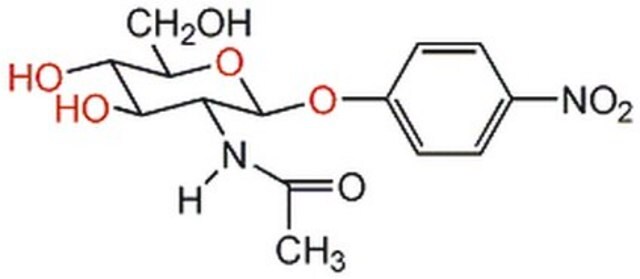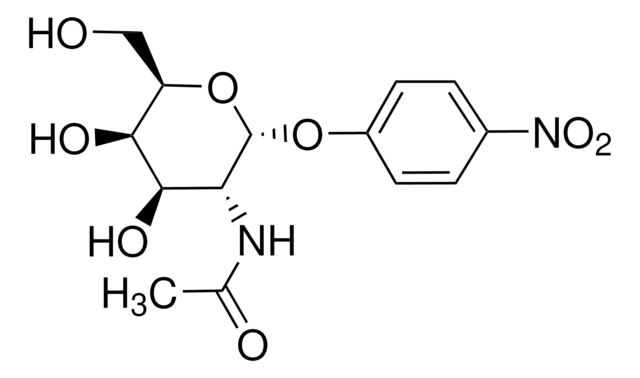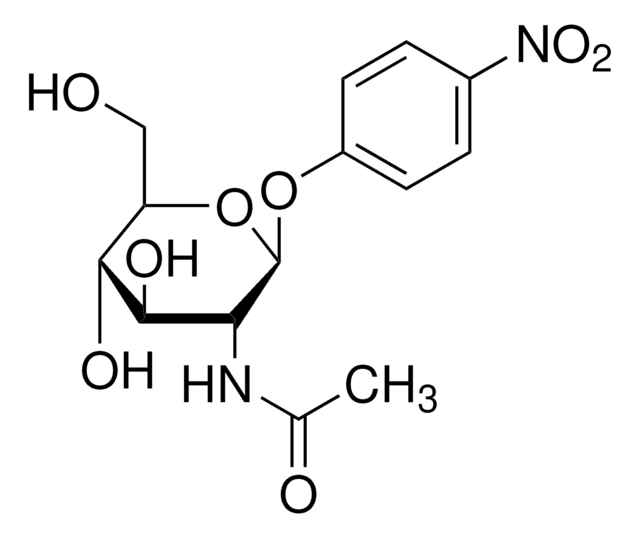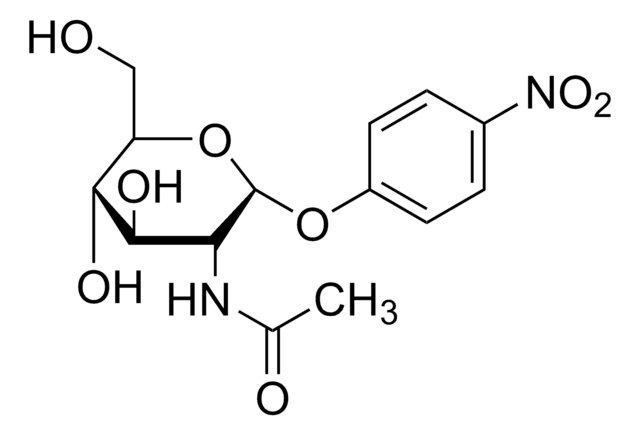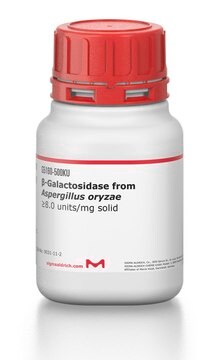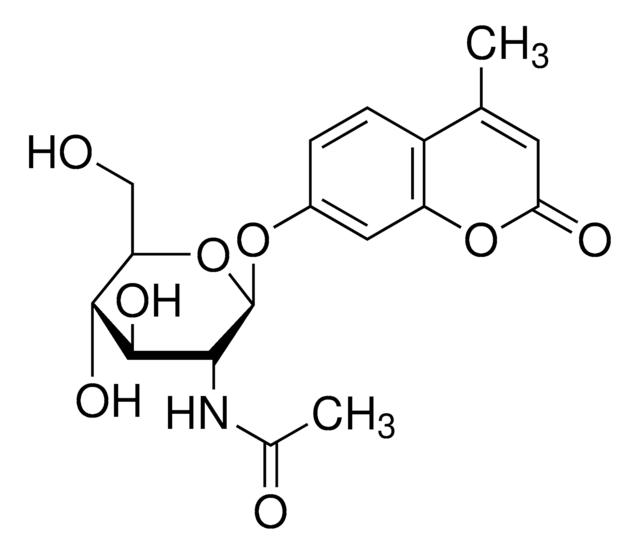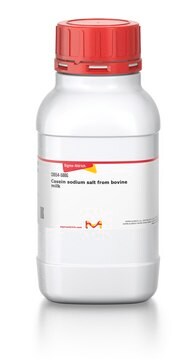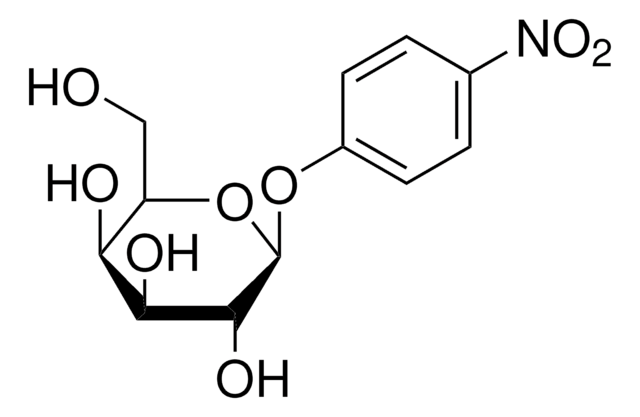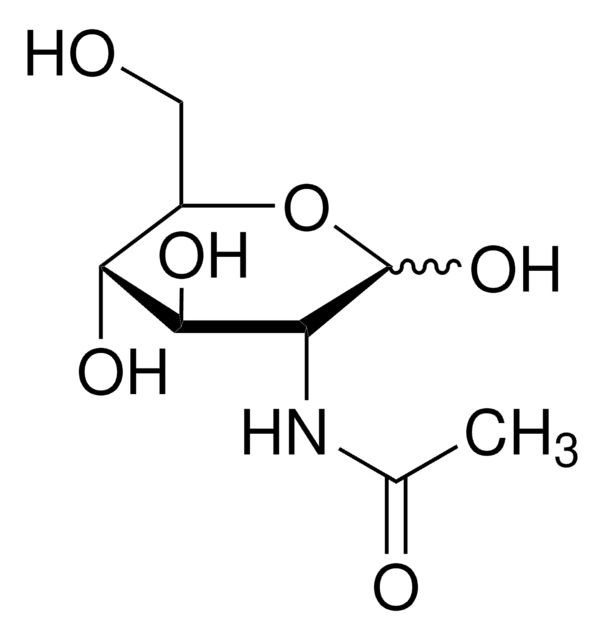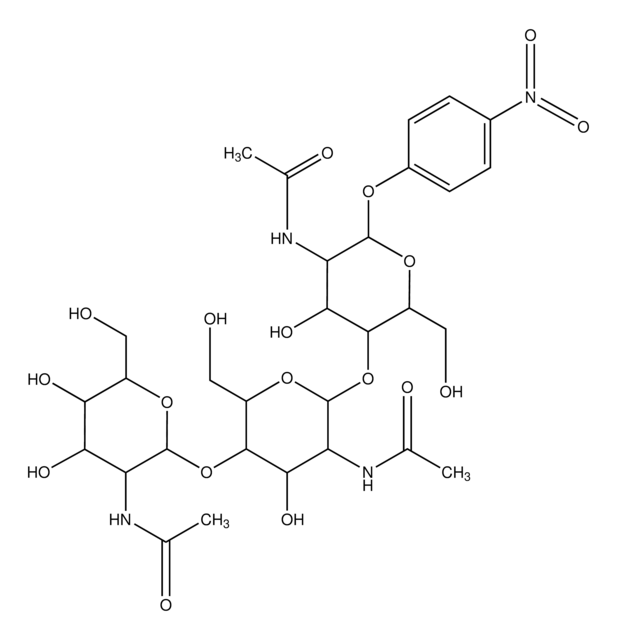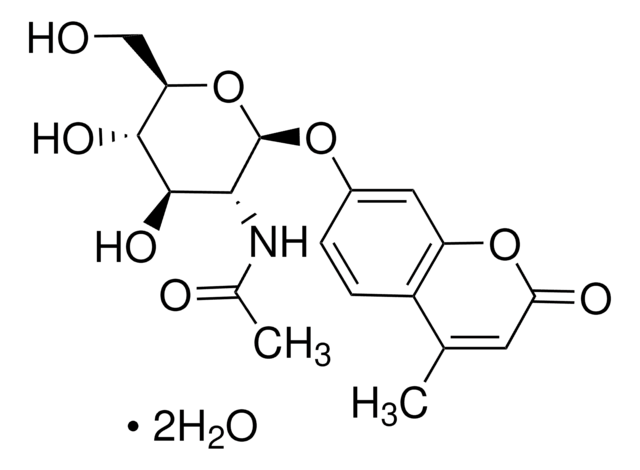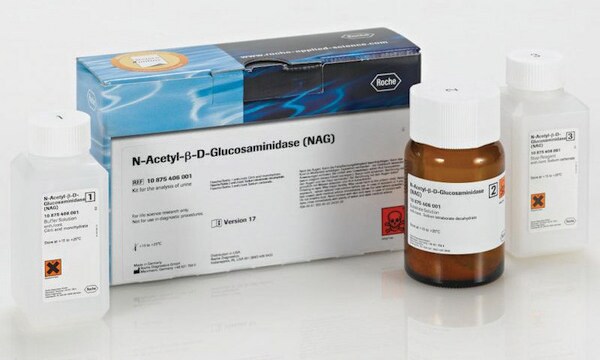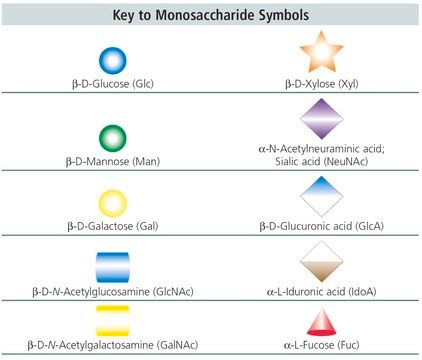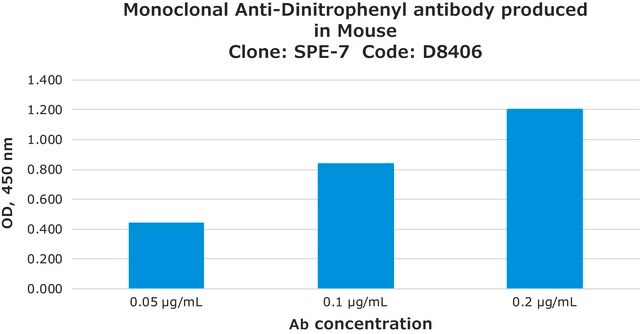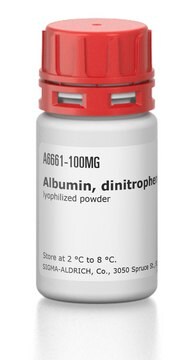N9003
4-Nitrophenyl N-acetyl-β-D-galactosaminide
≥98%
Synonym(s):
4-Nitrophenyl 2-acetamido-2-deoxy-β-D-galactopyranoside, p-Nitrophenyl N-acetyl-β-D-galactosaminide
About This Item
Recommended Products
Quality Level
Assay
≥98%
form
powder
solubility
DMF: 50 mg/mL
storage temp.
−20°C
SMILES string
CC(=O)N[C@@H]1[C@@H](O)[C@@H](O)[C@@H](CO)O[C@H]1Oc2ccc(cc2)[N+]([O-])=O
InChI
1S/C14H18N2O8/c1-7(18)15-11-13(20)12(19)10(6-17)24-14(11)23-9-4-2-8(3-5-9)16(21)22/h2-5,10-14,17,19-20H,6H2,1H3,(H,15,18)/t10-,11-,12+,13-,14-/m1/s1
InChI key
OMRLTNCLYHKQCK-RKQHYHRCSA-N
Looking for similar products? Visit Product Comparison Guide
General description
Application
- as a synthetic substrate in the glycosyl hydrolase assay of Yersinia pseudotuberculosis protein
- as a substrate in -β-hexosaminidase assay in adenocarcinomic human alveolar basal epithelial cells A549
- as a substrate for N-acetyl-β-D-galactosaminidase assay in rat kidney tissue extracts
Storage Class Code
11 - Combustible Solids
WGK
WGK 3
Flash Point(F)
Not applicable
Flash Point(C)
Not applicable
Personal Protective Equipment
Certificates of Analysis (COA)
Search for Certificates of Analysis (COA) by entering the products Lot/Batch Number. Lot and Batch Numbers can be found on a product’s label following the words ‘Lot’ or ‘Batch’.
Already Own This Product?
Find documentation for the products that you have recently purchased in the Document Library.
Customers Also Viewed
Our team of scientists has experience in all areas of research including Life Science, Material Science, Chemical Synthesis, Chromatography, Analytical and many others.
Contact Technical Service